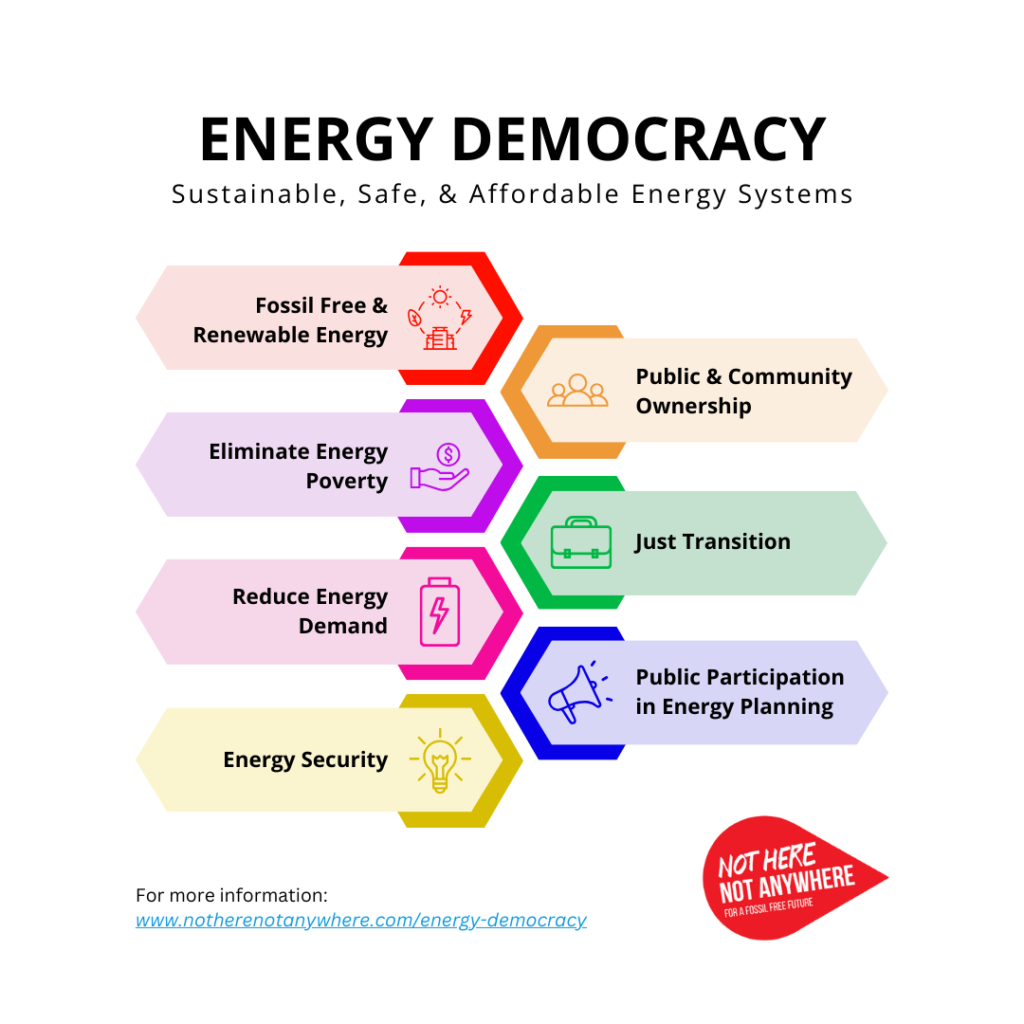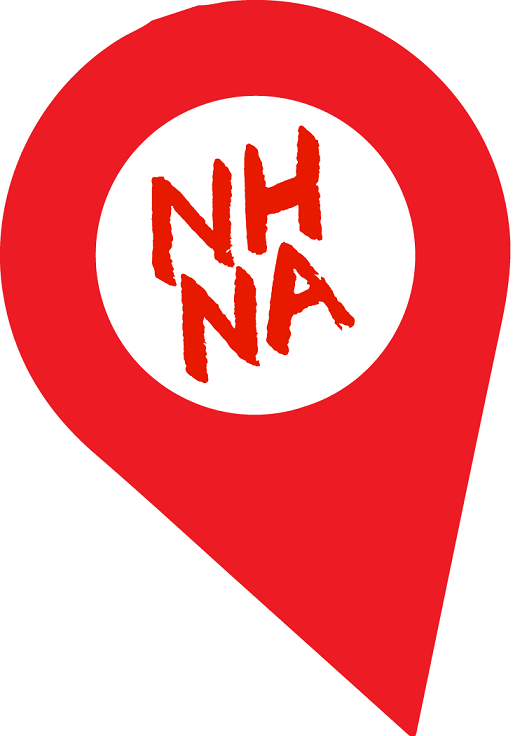We are often asked, “what’s the alternative to fossil fuels?” Our response: we need an urgent, socially just, and community-led transition to green energy and energy storage. This is captured by the concept of energy democracy.
Energy democracy means that energy is produced by the people, for the people. Renewable energy is produced and controlled at local level by communities and the state, not for-profit private companies. Energy democracy gives rise to green, local employment and allows small and medium-sized social enterprises to develop. This means that energy is cheaper, more accessible, and energy demand is managed more efficiently.
Ireland has a long history of treating energy as a public good: ESB was established in 1927 to ensure not-for-profit, universal, and affordable access to electricity. This included renewable power; the Ardnacrusha hydroelectric power plant was developed in 1929. We, as members of the public, have had control over our energy system before, and can have it again.
NHNA has developed an energy democracy framework based on seven principles (see below). As our campaign evolves, we will continue to develop and consolidate this framework.

Fossil Free & Renewable Energy
We must urgently and rapidly phase fossil fuels out of the energy mix in Ireland. This principle intersects all points of our energy democracy model. To meet our national carbon budgets under the Climate Action Plan, gas demand in Ireland must fall 40% by 2030 and a further 80% by 2040. New investment in fossil fuel exploration or infrastructure would only delay the energy transition. Fossil fuels also have unacceptable human rights and safety impacts on communities at home and abroad. Finally, renewable energy with storage is cleaner and cheaper than fossil fuels for decarbonisation.
Public and Community Ownership
We must reimagine and rebalance energy ownership, transitioning away from the current developer-led for-profit approach. Energy democracy includes both state and community ownership. Ireland is very suitable for state ownership of renewable energy resources, with a state-owned grid and major semi-state organisations such as ESB and Bord na Móna. Appropriate governance structures should be put in place to ensure these organisations are accountable to the public. Community energy consists of community based projects, organisations and social enterprises involved in the energy sector, owned and operated by local people and local authorities in the community. Denmark and Germany, where wind and solar energy were scaled up rapidly, have the highest levels of local and community ownership in Europe. Local energy also strengthens local economies. By avoiding large financial outflows from local economies to pay for external fuel and external energy, more financial resources are retained and circulated in local economies.
Eliminate Energy Poverty
Energy systems should be set up in a manner that addresses energy poverty and is inclusive of marginalised groups. In November 2022, an ESRI conference revealed that 40% of Irish households were experiencing energy poverty. Marginalised groups are disproportionately vulnerable to energy poverty. Measures should be put in place to ensure costs are kept to a fair level, for example housing stock retrofitted rapidly. Energy has to be seen as a human right and should not be subject to price hikes for company profits. A sovereign wealth fund or “Windy Day” fund should be established whereby the revenue from state-owned renewables are invested on behalf of the Irish people.
Just Transition
In trying to increase equality and eliminate energy poverty, we have to make sure we do not create other inequalities through the transition. People currently working in the fossil fuel industry should be offered training opportunities and financial support if they become unemployed. New jobs created as part of the energy transition have to include fair pay, protection of workers and access to unions to protect the interests of the people enabling energy democracy on the ground. We also need to consider spatial justice. Community and public ownership with public participation and accountability means that energy projects are built all over the country rather than in select areas. However, communities building and investing in local projects also carries the risk of resource-rich areas having better access to energy. Thus, we need balance in planning and targeted support and empowerment for communities with fewer resources.
Reduce Energy Demand
Energy demand should be managed responsibly and sustainably, with energy seen as a public good whereby essential services are prioritised. This should particularly target large energy users, who are often private corporations (such as data centres) who provide no transparency about the need for their energy demand, beyond profit maximisation. Energy reduction should happen equitably, without disadvantaging vulnerable members of society. Economic models should be adopted which ensure quality of life and equity for our societies, and also reduce demand and consumption in certain sectors.
Public Participation in Energy Planning
Public participation has to be ensured at all levels and stages of the energy transition. Local government should work closely with local communities to improve education and access to information around energy issues. They should also proactively engage in consultations and participatory processes which empower local people and build their capacity to have a say in the energy transition in their area. A participatory process can include, for example, annual local climate dialogues, information sessions and consultations on impact assessments. Citizen participation would also encompass the design of the participatory process itself. Special outreach efforts must be made to include disadvantaged or marginalised groups in these processes and consultations.
Energy Security
Energy democracy means local communities, and Ireland as a whole, are self-sufficient in terms of energy by producing it from renewable sources at home. This protects us from global supply disruptions and price changes, both of which are associated with importing fossil fuels. Renewables are often affected by weather, so investing in localised and large-scale energy storage (e.g., batteries, green hydrogen, pumped hydro), as well as interconnector cables to our European neighbours can ensure energy security with renewables.
Energy Democracy Examples
Numerous community renewable energy exemplar projects exist around Europe, such as the Edinburgh Community Solar Co-operative, the Som Energia non-profit renewable energy cooperatives in Spain, and Amsterdam’s community energy cooperatives – Ecostroom and Zuiderlicht – who work to turn empty roofs of the city (including many commercial roofs) into a community-solar powerhouse. See http://rescoop.eu which is an umbrella body for community energy cooperatives in Europe.
